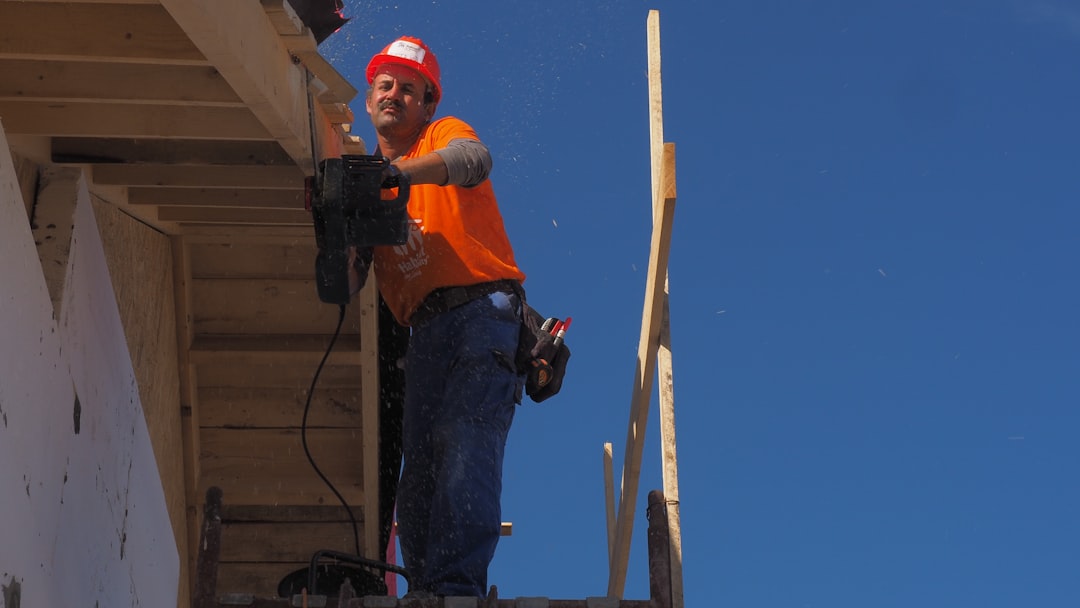CountBricks Tennessee Grading Equipment for Homes
Price source: Costs shown are derived from our proprietary U.S. construction cost database (updated continuously from contractor/bid/pricing inputs and normalization rules).
Eva Steinmetzer-Shaw
Head of Marketing
Tennessee Grading Equipment: Why It Matters for Residential Projects
Knoxville’s rolling hills and mixed soil profiles demand precise grading before a single foundation block is set. Selecting the right Tennessee grading equipment can shave days off your schedule and thousands off material costs. At CountBricks, we combine state-of-the-art machinery data with AI estimates—so every blade, bucket, and bulldozer is chosen for maximum efficiency.
Understanding Your Site Before Breaking Ground
CountBricks begins each project with a voice-guided site assessment inside our estimating platform. Home builders walk the lot, describe slopes in real time, and our AI engine instantly recommends grading equipment sized for the job.
- Compact track loaders for tight suburban infill lots
- Mid-range dozers for quarter-acre cuts and fills
- GPS-enabled motor graders for estate subdivisions and private roads
Integrating these recommendations into CountBricks.com keeps crews, budgets, and timelines aligned from day one.
Equipment Sizing: The Hidden Profit Lever
Oversized iron burns diesel, crushes topsoil, and inflates rental invoices. Undersized machines stall production and invite rework. CountBricks solves this by cross-referencing Tennessee grading equipment specs with local soil compaction ratings inside our blueprint takeoff module.
Step-by-Step Equipment Matching Process
- Upload or dictate your site plan into CountBricks Blueprint AI.
- Define target grades—pad elevation, driveway crown, swale depth.
- Our engine computes cubic yards of cut/fill and suggests optimal blade width, horsepower, and attachment list.
- Accept, adjust, or request live consultation through CountBricks.com.
Navigating Tennessee’s Regulatory Landscape
State stormwater rules require specific slope percentages and erosion controls. CountBricks embeds those thresholds into every residential estimate, preventing change orders later.
- Silt fence quantities auto-populate with each grading task
- Seed and straw pricing reflects seasonal availability across East Tennessee suppliers
- Inspection reminders trigger in our project dashboard to keep permits active
Rent, Buy, or Subcontract: A Data-Driven Choice
CountBricks does not sell equipment—we deliver clarity. Our cost module reviews rental rates from Tennessee fleets, ownership cost of capital, and subcontractor bids side by side so builders can decide instantly.
Key Residential Benefits
- Transparent daily rental vs. amortized purchase comparisons
- Cash-flow projections aligned with draw schedules
- Subcontractor productivity benchmarks built from past CountBricks projects
Real-World Example: West Knoxville Basement Build
A recent CountBricks client purchased a steep creek-side lot. Initial bids called for a 160-hp dozer, 14-foot grader, and two days of labor. Our voice walkthrough revealed a tighter working radius, allowing a 95-hp track loader with laser box blade to finish in one day. Result: $2,800 saved on equipment, $900 on labor, and zero overcuts to backfill.
Integrating Grading Data with Full Build Estimates
Because grading is only the first chapter, CountBricks automatically rolls earthwork quantities into your foundation, flatwork, and landscape modules.
- Adjust pad height and see concrete stem-wall volumes update live
- Add retaining walls and trigger stone material lists
- Include driveway cut and receive asphalt tonnage with haul-off fees
Five Pro Tips for Tennessee Grading Success
- Plan winter rough grading to exploit dormant vegetation and cheaper haul-off rates
- Test soil moisture after every rain; wet clay triples rolling resistance and fuel burn
- Keep a 2% minimum slope away from the house footprint to avoid foundation drains
- Use biodegradable visqueen under topsoil stockpiles to protect native red clay
- Sync your equipment rental return with CountBricks schedule alerts to avoid standby fees
CountBricks Support Beyond the Estimate
Our platform integrates with on-site telematics. When your rented grader idles over 15 minutes, CountBricks pings the foreman and updates cost projections. If weather delays are predicted, the AI reschedules final grading and concrete deliveries automatically.
Getting Started with CountBricks
Whether you are a custom-home GC or a first-time infill developer, CountBricks speeds up every phase of grading.
Step-by-Step Onboarding
- Create your project in CountBricks.com.
- Record a lot walkthrough via our mobile voice assistant.
- Receive your equipment list, task schedule, and cost breakdown.
- Approve, share with your crew, and break ground confidently.
Ready to move dirt smarter? Visit CountBricks.com today.
Case Study Deep Dive: Hillside Split-Level in Maryville
A builder approached CountBricks after three local grading subs quoted wildly different numbers—ranging from $14,500 to $26,000—for a split-level home on a 20-degree slope. Our AI assessment revealed that 60% of the cut material could be repurposed on site for rear fill, eliminating 18 dump-truck trips.
- Recommended Equipment: 105-hp crawler dozer with six-way blade, 3-ton vibratory roller
- Scheduled Duration: 1.5 days instead of the quoted 4-day average
- Cost Outcome: $11,200 total, including erosion control and compaction testing
Lessons Learned
- Precision over power: Mid-size equipment completed tight cuts without risking adjacent oak roots
- Data-backed haul-off: On-site material reuse lowered trucking emissions and fees
- Integrated scope: Final grades fed directly into foundation and retaining wall estimates inside CountBricks
How CountBricks Enhances Crew Collaboration
Our platform’s real-time voice notes let operators flag unexpected boulders or soft spots. The moment an issue is recorded, CountBricks recalculates quantities and pushes update alerts to concrete and framing teams.
- Reduced downtime: Crews see live changes and reorder materials instantly
- Fewer disputes: All adjustments are timestamped and stored for transparent billing
Next Steps for Tennessee Home Builders
- Book a free grading consultation at CountBricks.com
- Upload your plat and receive an equipment match within minutes
- Watch your entire build schedule tighten by days—sometimes weeks—thanks to optimized Tennessee grading equipment selections
CountBricks turns dirt work into a data-driven advantage. Let’s move ground together.

